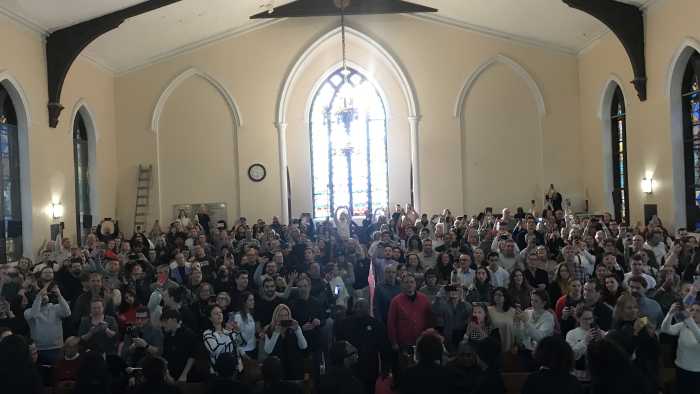After the second effort to redevelop Pier 40 sunk just a few months ago, previously heard grumblings about the Hudson River Park Trust’s board of directors grew louder.
There was an essentially viable concept at the heart of the community-driven plan by the Pier 40 Partnership and CampGroup/Urban Dove that the Trust rejected, these disgruntled community voices said; rather, the problem lay in the Trust’s board.
Indeed, if the Trust had worked with this community-led proposal earlier, instead of hoping The Related Companies’ inappropriate Cirque du Soleil megaplan would pan out, today we might be seeing progress.
And while Diana Taylor, the Trust’s chairperson, is sure that the pier will only work financially with a longer, 49-year lease, it’s important that we not put the cart before the horse: First, we need a plan acceptable to the community, and only then will we need a 49-year lease. Extending the lease for an unpopular scheme that will negatively impact the park and surrounding neighborhood will never fly with our local state elected officials — who must, after all, approve a legislative change to allow a longer lease for the pier.
The Trust was formed 10 years ago when the park was created by the Hudson River Park Act. The board has, largely, ably served this state-city authority.
Since 1998, almost half of the 5-mile-long, pier-studded park has been completed. But Pier 40, at W. Houston St., looms as a huge problem. The pier is expected to generate at least $6 million annually to help keep the supposedly self-sustaining park afloat. Yet Pier 40 will soon have a hard time staying afloat itself if a developer isn’t found to inject $50 million for desperately needed renovations of its metal support pilings.
We feel change is needed. The board has 13 appointees: five gubernatorial, five mayoral and three by the borough president. Some of these individuals have been on the board all 10 years.
There’s at least one board member apiece we think the mayor and governor could replace — namely Georgette Mosbacher, a Republican fundraiser, and Teddy Roosevelt, IV, a Republican environmentalist. Notably, Mosbacher’s recent public disparagement of parking on Pier 40 showed a profound disconnect with the desires of the community and a disregard for a proven, low-impact revenue source.
Meanwhile, Downtown park activists are saying former State Senator Franz Leichter — a co-author of the park act, should be switched to a gubernatorial appointee; that move would open up a “community” appointment for Borough President Stringer, while retaining Leichter’s institutional knowledge.
The complaints about the Trust’s board represent genuine concern about the inertia at Pier 40.
Surely, the financial crisis played a role in the collapse of the latest Pier 40 process. Yet this is the second time in recent years the Trust has failed to find a workable plan for this pier. So, financial crisis or no, the problem has reached the chronic stage.
In short, it’s time for an infusion of new ideas, energy and purpose at the Trust. If not, we fear the status quo will prevail, and Pier 40 will never get repaired — and, possibly, tragically be condemned. In turn, all Hudson River Park will be put at risk.
President Obama speaks of “Change we can believe in.” That’s a good mantra for Hudson River Park in 2009, as well.


































